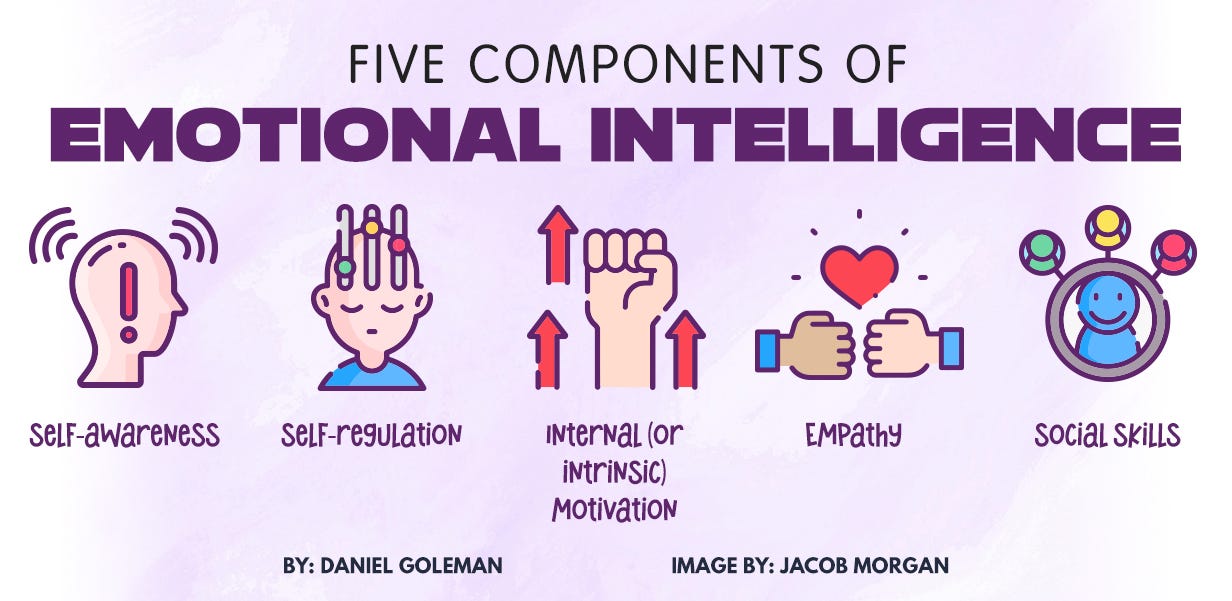Components of Emotional Intelligence
Emotional intelligence comprises five key
components, each essential for understanding and managing emotions effectively.
Below is a definition of each component followed by hypothetical scenarios that
illustrate correct and incorrect applications of each.
1. Self-Awareness
Self-awareness is the ability to recognize and
understand your own emotions, strengths, weaknesses, and values.
- Correct
Scenario: During a team meeting, you notice that you are becoming anxious about
a project deadline. You acknowledge this feeling and decide to share your
concerns with your team to seek support.
- Incorrect
Scenario: You feel overwhelmed with work but choose to ignore these feelings.
When a teammate asks how you’re doing, you respond with frustration instead of
addressing your stress.
2. Self-Regulation
Self-Regulation
is the ability to manage your emotions and impulses, and to adapt to changing
circumstances.
- Correct
Scenario: After receiving constructive criticism from your supervisor, you take
a moment to collect your thoughts before responding, allowing you to express
gratitude for the feedback rather than reacting defensively.
- Incorrect
Scenario: You receive a negative review and immediately react by arguing with
your supervisor, refusing to accept any responsibility for the issues raised.
3. Motivation
Motivation is the drive to pursue goals for
personal reasons beyond external rewards, such as passion and commitment.
- Correct
Scenario: You are working on a long-term project that is challenging, but
instead of feeling discouraged, you remind yourself of the personal growth and
skills you will gain from completing it.
- Incorrect
Scenario: Faced with a setback on a project, you decide to quit, feeling that
the effort is not worth it and blaming others for your lack of success.
4. Empathy
Empathy is the ability to understand and share
the feelings of others, and to respond appropriately to their emotions.
- Correct
Scenario: A friend shares that they are feeling down about a recent job loss.
You listen attentively, validate their feelings, and offer your support,
understanding the emotional weight of their situation.
- Incorrect
Scenario: When a colleague expresses frustration about a heavy workload, you
dismiss their feelings by saying, "Everyone has to work hard; just get
over it," showing a lack of understanding.
5. Social Skills
The socials skills are abilities that help us build
and maintain healthy relationships, communicate effectively, and work well in
teams.
- Correct
Scenario: During a group project, you actively facilitate discussions,
encourage participation from all team members, and help resolve conflicts by
finding common ground.
- Incorrect
Scenario: You often keep to yourself and avoid engaging with your team, leading
to misunderstandings and a lack of cohesion in collaborative efforts.


Comentarios
Publicar un comentario